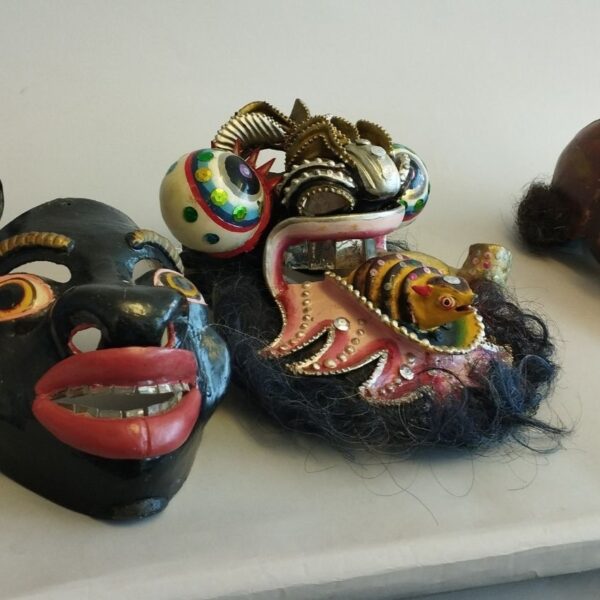Blog Artist Perspectives on the Politics of Andean Negrería Dances
Artist Perspectives on the Politics of Andean Negrería Dances is an article that reflects on Andean dances as spaces of resistance and multivocality. Published in the Harvard Review of Latin America, it addresses Aymara poet and artist Nereida Apaza Mamani’s personal perspectives on the British Museum’s Andean textile collections and Afro-Bolivian artist Sharon Pérez political positions related to the objects through SDCELAR collaborations.
Many of the current Latin American carnivals “commemorate local historical narratives about Indigenous, Spanish, African and other ethnic identities, but at the same time they create a space to raise issues that have an impact on race relations and cultural expression in the present”.
“The flexibility of carnival dances, in contrast to static nature of monuments, provides a space to challenge national narratives, but it can also reinforce them. Whether the danzas act as an offering to the earth for the next harvest, to reassert and reclaim Afro history and identity, or to problematize traditional gender roles, these danzas adapt to contemporary concerns and display multiple positionalities”.
You can read the full article here.
STAY UPDATED >> For more about this and other projects follow us on Facebook and Instagram.

